What Age Do You Start Kindergarten: Parents Intro from Experts
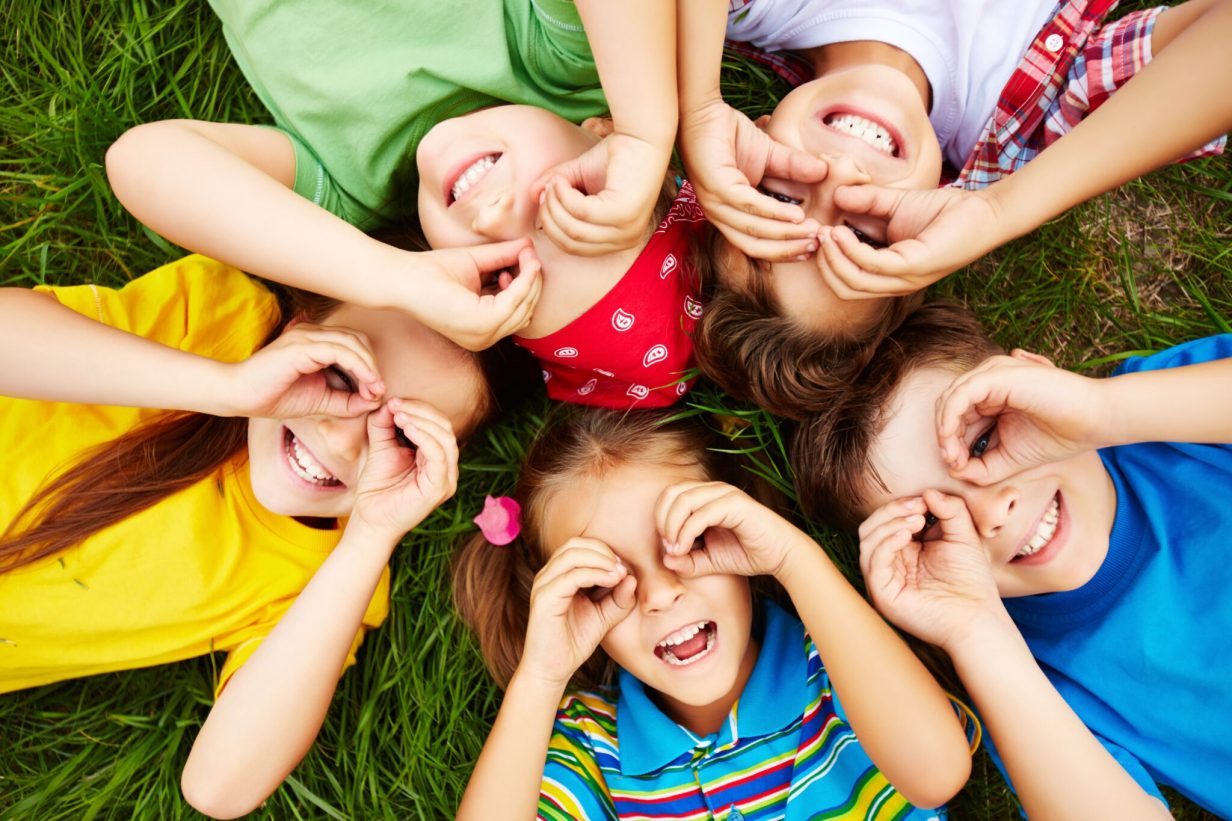
While the average age to start kindergarten is 5 years old for kids, some parents are delaying kindergarten for their child after weighing the advantages and disadvantages when it comes to their child’s development.
We’re answering the question, “What age do you start kindergarten?” to ensure your child is on the right track to success.
Contents:
- When is the Best Time to Bring the Child to Kindergarten Class?
- Benefits of Starting Kindergarten Earlier or Later
- Redshirting in Kindergarten: Is It Right for Your Child?
- What Your Child Learns There?
- Preparing Your Child for Kindergarten
- Enhancing Kindergarten Safety and Peace of Mind
- FAQ
- Can I Request an Age Waiver for My Child?
- What If My Child Misses the Cutoff Date?
- Can I Choose to Homeschool My Child for a Year Instead of Sending Them to Kindergarten?
- Are There Programs for Younger Children Who Aren’t Eligible for Kindergarten Yet?
- What If My Child Has a Birthday Just Before the Cutoff Date?
When is the Best Time to Bring the Child to Kindergarten Class?

Prostock-studio/Shutterstock.com
The school year in most school distrcits typically starts at the beginning of September. This is the best time to bring your child to a kindergarten class.
It’s best to avoid enrolling them in kindergarten in the middle of the year, such as in the second semester.
Starting kindergarten at the start of the school year allows your child to connect with other new kindergarteners and classmates, making it easier for them to make friends.
What Age is Best to Enroll Children in Kindergarten?
Preschool programs for children in the US can be classified into 3 main categories:
| Type of educational institution | Child’s age |
| Children daycare | From 6 months |
| Pre-kindergarten | 3-5 years old |
| Kindergarten | 5-6 years old |
Traditionally, kindergarten enrollment starts when a child is the minimum age of five years old. However, due to state-mandated cutoff dates, public schools require children to turn this age by September 1st of the upcoming school year. So, a child with a summer birthday falls perfectly in line with the cutoff date.
The education commission feels that this is the best age to enroll children in kindergarten.
While this is the standard age, some parents are delaying kindergarten for their children. Delaying kindergarten means waiting an extra year for their children to start school. This may be due to their child’s development and behavior or simply where their birthday falls during the year.
Additionally, some parents may opt for early entrance to kindergarten in nonpublic school if their child is mature enough and ready to attend school.
What Reasons Affect the Age Kids Should Start Kindergarten?
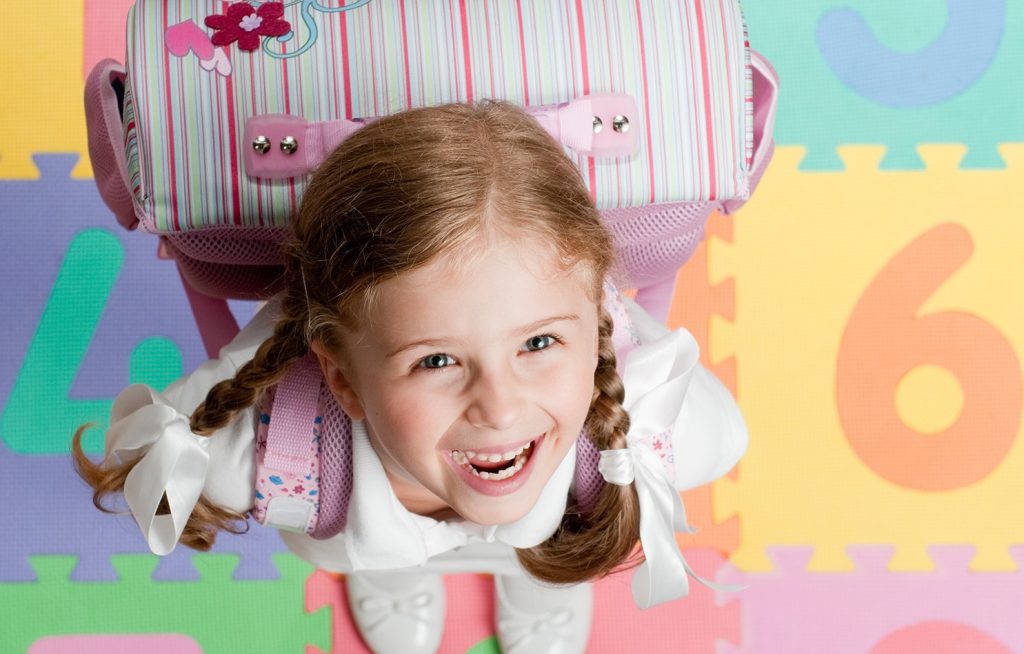
Prostock-studio/Shutterstock.com
Several factors influence the age at which a child should start kindergarten, and assessing a child’s readiness involves considering various aspects. Here are the key reasons affecting the age for kindergarten enrollment and how to determine if a child is ready:
- Age Cutoff Date: Most school districts have specific age cutoff dates for kindergarten entry. Children must reach a certain age by a particular date to enroll. For example, a child might need to turn five by September 1st to start kindergarten that year.
- State Regulations: State laws vary regarding kindergarten entry age requirements. Some states offer flexibility, allowing parents to decide when their child is ready for kindergarten within a certain age range.
- Developmental Milestones: Consider the child’s physical, emotional, and cognitive development. Are they reaching typical developmental milestones for their age, such as fine motor skills, language development, and social interaction?
- Social Skills: Evaluate the child’s social readiness. Can they interact with peers and adults appropriately? Do they show signs of independence, such as being able to follow basic instructions and manage self-care tasks like using the restroom?
- Emotional Readiness: Assess the child’s emotional maturity. Are they able to handle separation from parents or caregivers? Do they display emotional regulation skills and resilience when facing challenges?
- Cognitive Abilities: Gauge the child’s cognitive abilities and interests. Are they curious and eager to learn? Do they show early literacy and numeracy skills?
- Communication Skills: Strong communication skills, including listening and expressing thoughts and needs, are important for success in kindergarten.
- Previous Learning Experience: Consider the child’s exposure to structured learning environments, such as preschool or daycare, and how well they adapted to such settings.
- Peer Group: Think about the potential peer group your child will join. Will they be significantly younger or older than their classmates? This age difference can impact their social interactions.
- Long-Term Goals: Consider your long-term educational goals for your child. Starting kindergarten earlier may mean that they reach certain milestones sooner, while delaying kindergarten may provide additional time for growth.
Remember that every child is unique, and readiness can vary widely. Some children may be ready for kindergarten at a younger age, while others may benefit from a little extra time before starting school.
Should the Child Attend Kindergarten?
Determining whether or not your child is kindergarten ready is one of the biggest decisions parents will make.
Sending your child to kindergarten too early could make them feel overwhelmed and struggle in school. On the other hand, sending your child to kindergarten too late could prevent them from feeling challenged in school.
If you believe your child has the social skills to be around other kids for half day kindergarten and behave in a classroom, then they may be ready to enter kindergarten.
Benefits of Starting Kindergarten Earlier or Later
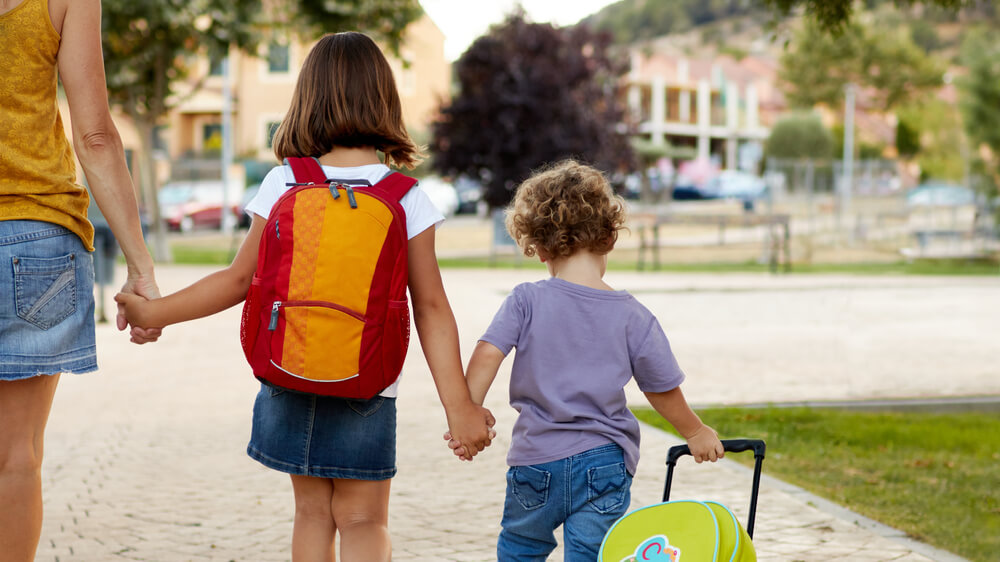
roberjzm/Shutterstock.com
Starting kindergarten earlier or later can have various benefits depending on the child’s individual needs and circumstances. Here’s a discussion of the advantages of both options:
Starting Kindergarten Earlier:
- Academic Readiness: Some children may be academically advanced and ready for the curriculum offered in kindergarten at a younger age. Starting earlier can allow them to engage in more challenging coursework.
- Socialization: Younger children may have more opportunities to develop essential social skills by interacting with older peers. This can help them adapt more quickly to social situations and build confidence.
- Continuity: Starting kindergarten at a younger age can ensure a smoother transition from preschool or home, maintaining a sense of continuity in a child’s educational journey.
- Early Identification: Teachers can identify potential learning challenges or special talents earlier, enabling timely intervention or enrichment programs.
Starting Kindergarten Later:
- Maturity: Older kindergartners tend to have better emotional and behavioral maturity, making it easier for them to adapt to a structured school environment.
- Physical Development: Delaying kindergarten can give children more time for physical growth, which can be particularly advantageous in sports and physical activities.
- Improved Focus: Older children may have a longer attention span and better focus, which can contribute to better classroom engagement and learning outcomes.
- Leadership Skills: Older students often take on leadership roles more confidently, helping create a positive classroom environment.
- Reduced Adjustment Stress: Delaying kindergarten can reduce the stress and adjustment challenges that younger children might face when starting school.
Ultimately, the decision to start kindergarten earlier or later should be based on a careful assessment of the child’s individual readiness, developmental stage, and the family’s goals.
Stop worrying about your child when they are in kindergarten. Make sure that they are doing well and do not experience problems in adjusting themselves to the new environment, and ensure that they are not being bullied. Download the Findmykids app!
Redshirting in Kindergarten: Is It Right for Your Child?
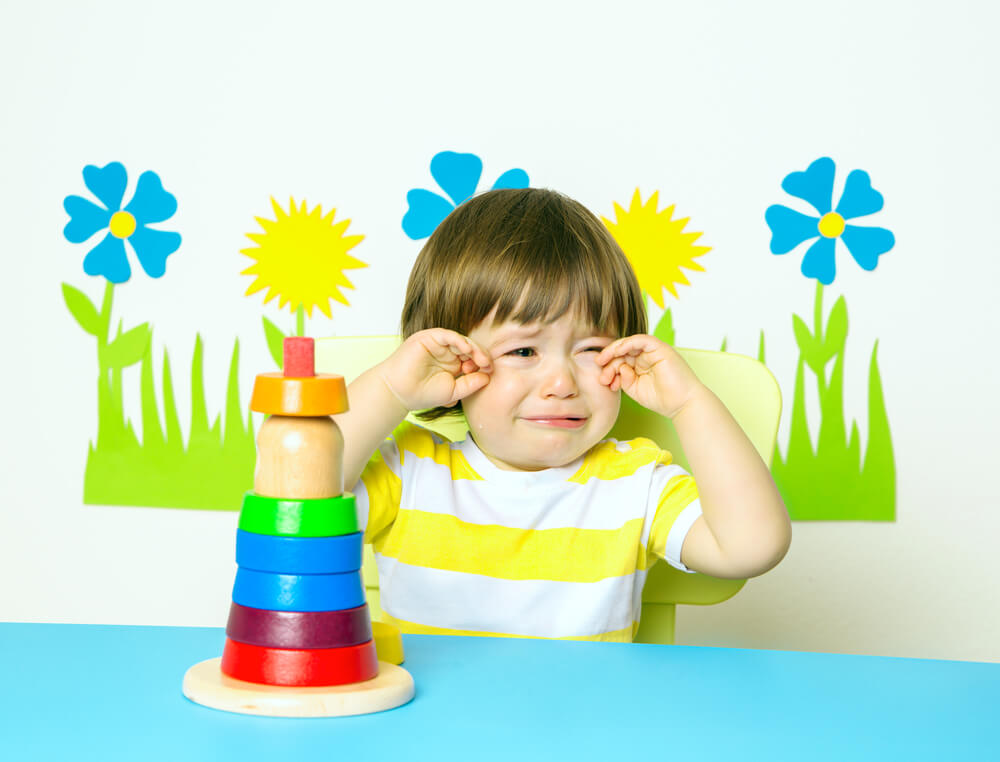
Prostock-studio/Shutterstock.com
“Redshirting” in the context of kindergarten refers to the practice of delaying a child’s entry into kindergarten for a year, typically for reasons related to age and developmental readiness. This term originates from college sports, where student-athletes are sometimes held back from competing in their first year to extend their eligibility.
Reasons for Redshirting:
- Age: Some parents choose to redshirt their child if they have a late summer or fall birthday and are concerned that they may be among the youngest in their class.
- Developmental Readiness: Parents may redshirt their child if they believe they aren’t emotionally, socially, or academically ready for the demands of kindergarten.
- Size and Maturity: Physical size and maturity can also play a role. Parents might redshirt a child who is significantly smaller or less physically developed than their peers.
- Learning Disabilities: If a child has a diagnosed learning disability or developmental delay, parents might consider redshirting to provide extra time for intervention and support.
Redshirting is a decision that parents should make carefully, considering their child’s individual circumstances. It’s essential to weigh the short-term advantages against potential long-term implications.
What Your Child Learns There?
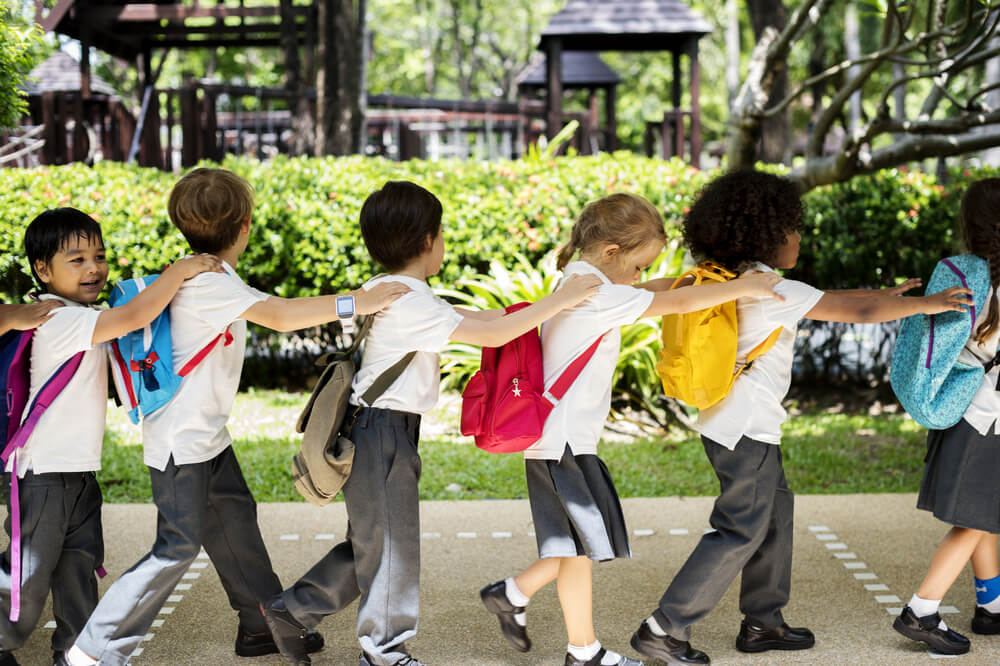
Prostock-studio/Shutterstock.com
In kindergarten, children learn a wide range of skills and knowledge that serve as a foundation for their future education. Here are some key areas of learning in kindergarten:
Basic Academic Skills:
- Reading: Kindergarteners start developing early reading skills. They learn the alphabet, letter sounds, and sight words.
- Writing: They begin to write letters and simple words and learn about sentence structure.
- Math: Children are introduced to basic math concepts like counting, number recognition, addition, and subtraction.
- Science: Kindergarten often includes hands-on science activities to introduce children to the natural world.
Social and Emotional Development:
- Social Skills: Kindergarten helps kids learn how to interact with others, share, cooperate, and resolve conflicts.
- Emotional Skills: Children develop emotional awareness and learn how to manage their feelings and reactions.
- Independence: They start to do tasks independently, like putting on their shoes and cleaning up after themselves.
Physical Development:
- Fine Motor Skills: Kindergarteners refine their fine motor skills through activities like drawing, cutting, and writing.
- Gross Motor Skills: They engage in physical activities like running, jumping, and playing games to develop coordination and strength.
And More:
- Creativity and Art: Kindergarten encourages creativity through art projects, music, and imaginative play.
- Critical Thinking: Children learn problem-solving skills and critical thinking by exploring cause-and-effect relationships and making decisions.
- Cultural and Social Studies: Kindergarten often introduces kids to concepts like community, family, and cultural diversity.
- Health and Safety: Basic health and safety topics may include personal hygiene, nutrition, and understanding safety rules.
- Technology: Some kindergarten programs integrate age-appropriate technology to familiarize children with computers and tablets.
- Language and Communication: Kindergarteners continue to develop their language skills, including speaking and listening.
- Love of Learning: One of the most important goals of kindergarten is to foster a love of learning and curiosity about the world.
It’s important to note that kindergarten curriculum can vary by school district and region, so the specific skills and topics covered may differ.
Preparing Your Child for Kindergarten
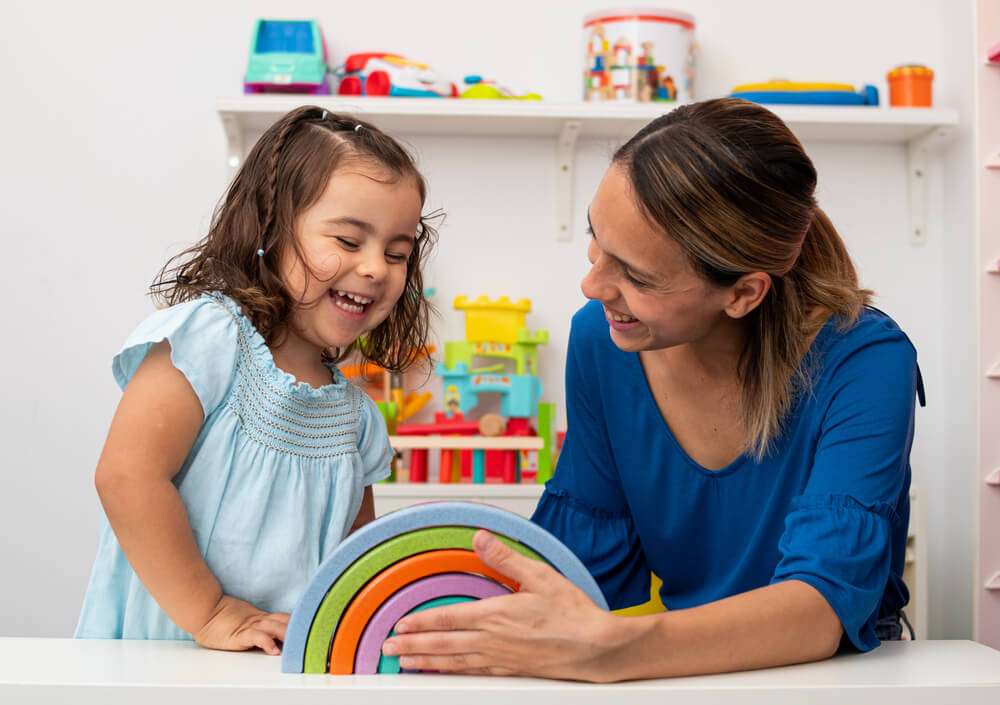
Juan Brian Diaz Hernandez/Shutterstock.com
Preparing your child for kindergarten is crucial, regardless of their entry age. Here are some tips and strategies for parents to help their child thrive in this new educational environment:
- Encourage a love of reading by reading books together regularly. Talk about the story, ask questions, and let your child ask questions too. Visit the library for storytime sessions.
- Practice counting, identifying numbers, and exploring basic math concepts through everyday activities like counting objects, setting the table, or measuring ingredients while cooking.
- Encourage your child to complete age-appropriate tasks independently, such as dressing themselves, using the restroom, and cleaning up toys. This fosters self-confidence and responsibility.
- Arrange playdates and social activities with peers to help your child develop important social skills like sharing, taking turns, and resolving conflicts peacefully.
- Promote effective communication by actively listening to your child, engaging in conversations, and expanding their vocabulary. Encourage them to express their thoughts and feelings.
- Establish a daily routine that includes designated times for learning, play, meals, and rest. This helps children understand expectations and feel secure.
- Encourage physical activity to develop motor skills. Activities like drawing, cutting with safety scissors, and playing with building blocks enhance fine motor skills. Outdoor play, running, and jumping develop gross motor skills.
- Encourage your child’s natural curiosity by providing opportunities for exploration and discovery. Visit museums, parks, and nature centers to spark their interest in the world around them.
Enhancing Kindergarten Safety and Peace of Mind
Ensuring the safety of your child is a top priority for every parent. This is especially true when it comes to your child’s journey into the world of kindergarten.
The Findmykids app and Pingo GPS-watches for kids offer invaluable tools to enhance both the safety and overall experience for your little one.
- With GPS-watches securely strapped to your child’s wrist, you can always pinpoint their exact location. Whether they’re on the school bus, at the playground during recess, or even during extracurricular activities, you can rest assured knowing their whereabouts.
- For many parents, the moment their child boards or disembarks from the school bus can be a source of worry. The Findmykids app sends you notifications when your child arrives safely at school or back home, putting your mind at ease.
- The app allows you to set up geo-fences, virtual boundaries that you define as safe areas. If your child strays outside these boundaries, you’ll receive an instant alert, ensuring you can react swiftly in case they wander off.
- Kids are naturally curious, and sometimes they might find themselves in uncomfortable situations. The app’s SOS button, easily accessible on their GPS-watch, enables them to send an immediate distress signal to you, so you can respond promptly.
- The GPS-watches also offer voice communication features, allowing you to speak directly with your child when needed. Whether it’s a reminder to pack their lunch or simply to say ‘I love you,’ staying connected is effortless.
In cases where your child is not yet accustomed to the school environment or is particularly young, these tools can be a game-changer. They offer both you and your child a sense of security and connection during those early days of kindergarten.
With the Findmykids app and Pingo watches, your child’s safety and well-being are in the palm of your hand, making the transition to kindergarten a smoother and more enjoyable experience for everyone!
Serious Decision

Dusan Petkovic/Shutterstock.com
The decision regarding the age at which to enroll a child in kindergarten is a significant one, and it should consider various factors. While formal schooling typically begins around age 5, younger kids may also be eligible based on individual circumstances and local regulations.
Education week by week is a journey, and it’s important to remember that each child’s developmental path is unique. Some may thrive in a formal classroom setting from an early age, while others benefit from a little extra time before entering elementary school. Delaying kindergarten, often referred to as “redshirting,” can provide children with greater maturity and readiness for the first grade.
Ultimately, parents should trust their instincts, consult with educators, and consider their child’s specific needs and abilities. Whether you choose to enroll your child earlier or later, remember that their educational journey is a marathon, not a sprint. The goal is to provide the best possible foundation for their academic success and overall well-being, ensuring they are enrolled in elementary school at the right time for their individual development and needs.
FAQ
Can I Request an Age Waiver for My Child?
Yes, in some states, parents can request an age waiver to enroll a child who doesn’t meet the kindergarten entry age cutoff. Typically, this requires demonstrating that the child is developmentally ready and would benefit from starting school early. Contact your school district for specific guidelines and procedures.
What If My Child Misses the Cutoff Date?
If your child misses the kindergarten entry age cutoff date, you may need to wait until the following school year to enroll them. However, some school districts offer alternative programs, like transitional kindergarten, for children who miss the cutoff but are close in age.
Can I Choose to Homeschool My Child for a Year Instead of Sending Them to Kindergarten?
Yes, homeschooling is an option in many states. If you’re considering this route, research your state’s homeschooling requirements and consult with local homeschooling organizations for guidance.
Are There Programs for Younger Children Who Aren’t Eligible for Kindergarten Yet?
Some school districts offer preschool or transitional kindergarten programs for children who miss the kindergarten age cutoff. These programs can provide valuable early learning experiences.
What If My Child Has a Birthday Just Before the Cutoff Date?
Children with birthdays close to the cutoff date may be among the youngest in their class. It’s essential to assess their readiness and consider your child’s individual developmental progress.
Проверьте электронный ящик




















